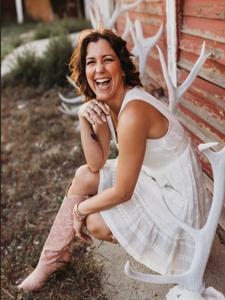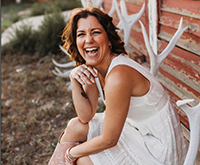Next to Love by Ellen Feldman
Posted December 29, 2013 by Prairie Wife -
Sometimes I read to escape reality, other times I read to broaden my horizons. I originally picked Next to Love by Ellen Feldman for two reasons. Firstly it was a historical fiction novel (one of my favorite genres) that takes place during World War II (one of my favorite time periods); secondly it takes place before, during, and after the war. Too often when I read books they only take place during the war, and I am always left wondering what really happened afterwards. I was expecting an interesting read, but was instead left with a new perspective on my life, and an overwhelming respect for the past generations.
I began reading this book just after I did an interview with my Grandma Bea for our Prairie Wife of the Week Post. She was the same age as these women when the War started, and I think that this personal connection made Feldman’s book seem more relevant to me. My Grandfather fought overseas in World War II, but I don’t recall him ever talking about it. I now have a better understanding of his silence.
The prologue (July 17, 1944) starts the story with Babe, a young married woman who works in her small towns Western Union Telegraph office. She was hired only when she promised that “once the men started coming home she would give up the job.” It is a day that changes the whole town; as telegraphs beginning with “The secretary of war desires me to express his deepest regrets that…” come flooding in.
Feldman then takes us back to 1941 and we begin to become familiar with the main characters; Grace and Charlie and their baby Amy, Millie and Pete, Babe and Claude. While at first the book seems to revolve around Babe, I came to realize that the other woman’s stories were no less important. As the book continues we see the characters grow and change as the War begins to take hold on America. The man leave, and woman and children are left to live on their own. My heart broke as I read the letters from the men to their wives, and learned how each woman dealt with their worry and grief. I can’t imagine having to wait days, weeks, and even months to hear from you loved one. Not knowing if you are writing letters to someone who is already dead.
The war ends and in its wake we are left with two widows and a wife, with a husband who no longer resembles the man she married. As I read about their journey of grief I related in a very personal way. My heart broke for these woman and men who were changed in ways they had no way of predicting. I particularly like Feldman’s emphasis on the harsh realities for the war vets and their families, this was defiantly not a sugar coated “everyone lives happily ever after” return home. The book continues on though the 1950’s and into the 1960’s where we watch America change, and our characters struggling with these changes. Feldman makes connections between the War and transformations in our society that I had not thought about since high school history class, and I couldn’t help but draw comparisons to our current society.
At the end of the book I was left with a better understanding of what my grandmother’s generation went through, and an appreciation for our current understanding of the emotional effects of war. I am more compassionate than ever towards our current soldiers and the families they leave behind, and thankful for the technology that allows us to talk to family, and even see them, when they are thousands of miles away. I started to read Next to Love because it looked like a good book, I ended it a more grateful person.
Some other books that are similar…
The Postmistress by Sarah Blake
War Brides by Helen Bryan
The Guernsey Literary and Potato Peel Society by Mary Ann Shaffer and Annie Barrows
Categories: Reviews
Tags: , 1944, ellen feldman, next to love, world war II
Previous Post « Three Bean Crockpot Chili
Next Post Five Style Resolutions for 2014, Prairie Wife »




